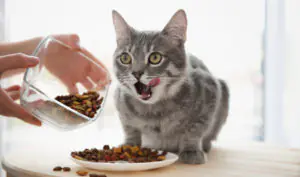Coronavirus gastroenteritis in cats is classified as an acute inflammatory process that develops in the gastrointestinal tract. The disease affects not only domestic animals, but also wild representatives of the cat family. The pathology is considered a dangerous condition, as it can lead to death of the animal. To date, there is no effective vaccine to prevent the disease. However, every caring cat owner must do everything necessary to protect their furry friend from this terrible infection.
The content of the articleDisease concept
The pathogen that causes coronavirus gastroenteritis in cats is a special microorganism that can cause several diseases at once. Once in the gastrointestinal tract of a cat, the virus can provoke a mild degree of illness without threatening the life of the furry pet. But in some cases, the coronavirus pathogen begins to mutate, causing serious inflammation of the abdominal cavity, which in 100% of cases ends in the death of the animal.
If you examine the virus under a magnifying glass of a microscope, its head will be shaped like a crown, hence the name coronavirus. The microorganism is relatively stable in the external environment and, under favorable conditions, can be viable for more than 1 month. The causative agent of the disease is considered to be infected animals that excrete the virus in their feces. Some cats can carry the virus, but will never get the infection themselves.
Most often, older animals, small kittens, and those cats whose immune systems are severely weakened become infected. There is no vaccine to prevent the disease, but there is a drug, the administration of which makes it much easier to transfer the infection. Coronavirus does not pose a threat to human health, and is not transmitted from cat to dog, so there is no need to isolate a sick pet from other residents of the apartment.
Causes of coronavirus gastroenteritis in cats
One of the main reasons for the occurrence of coronavirus infection in cats is a decrease in the body’s protective properties. As a rule, if a cat’s immunity is severely weakened, the body is not able to fight the viruses and bacteria that enter it. Gastroenteritis in cats is provoked by the following factors:
- allergic reactions (food allergies are especially dangerous);
- therapy with antimicrobial drugs that irritate the gastric mucosa;
- improper diet (feeding the animal salty, sweet or spicy foods), constant overeating; Exudative infectious peritonitis causes not only respiratory, but also heart failure. Due to the enormous size of the belly, the cat is unable to move or lie down normally.
Diagnosis and therapy of the virus
Diagnosis of infection is carried out comprehensively; it is necessary not only to visually assess the pet’s condition, but also to prescribe laboratory and instrumental diagnostic methods. To identify the causative agent of infection, you need:
- Analysis of blood and free fluid (effusion). The polymerase chain reaction (PCR) can detect infectious peritonitis virus. An ELISA test allows you to detect antibodies to the causative agent of the disease.
- X-ray and ultrasound examination. Helps detect inflammatory processes in the intestines, changes in the structure of internal organs, the presence of exudate in the peritoneum, and enlarged lymph nodes.
- Pathological autopsy of a dead animal. Allows you to see the degree of damage to internal organs (gastroenterocolitis in cats, changes in the shape and structure of the liver, spleen).
Advice from the doctor! Infectious peritonitis, unfortunately, is incurable. A sick animal rarely lives for more than 3 months, and during this time veterinarians try to alleviate the cat’s condition as much as possible, as well as improve its quality of life. To eliminate dehydration, antiemetic and antidiarrheal drugs are used, and intravenous drips with saline are prescribed.
Prevention
To prevent gastroenteritis in a cat, you must follow certain rules for keeping pets:
- Before mating, both animals must be tested for the virus;
- prevent contact of your pet with large groups of cats (kennels, exhibitions, street walking);
- provide the pet with good care (proper and balanced feeding, thoroughly cleaning the animal’s habitat);
- try to avoid overheating or hypothermia of the cat.
The feline coronavirus vaccine (Pfizer or Primucell intranasal drug) can protect your pet from infection, but as a rule, there is no complete guarantee that the cat will not get coronavirus infection. Thanks to the vaccine, you can only weaken the intensity of the disease, make the course of the infectious process weaker, everything else will depend on the animal’s immunity.
It is not for nothing that coronavirus gastroenteritis is considered a deadly disease for cats, because it is difficult to guess which strain of the pathogen will be present in the body of a four-legged friend. Therefore, if there are any deviations in the pet’s health, it is necessary to urgently seek veterinary help and be tested for coronavirus in cats.



